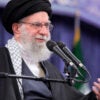Visiting America for the U.S.–Africa Leaders Summit last week, heads of African nations had plenty to say about the need to increase access to reliable, affordable energy. Yet some are trying to dissuade African investment in conventional energy sources such as coal and natural gas in an effort to stave off global warming.
Roughly 550 million people in Africa live without electricity according to the World Bank. “Whatever we can do to get Africa from a place of darkness to a place of light…I think we should encourage that to happen,” said Nigeria’s minister of power Chinedu Ositadinma Nebo.
Coal, natural gas, nuclear, and hydropower plants have powered economic opportunity around the world and will continue to do so. For example, there are 1,200 proposals for coal plants to be built around the world and even “climate conscious” Europe is pivoting back to coal, putting coal on track to be the world’s top energy source. Meanwhile, President Obama and his Administration have done everything in their power to end the use of coal as an electricity source in America.
While “renewable” sources such as wind and solar can play a role in the energy mix, they have yet to provide reliable baseload power. “We in Africa, we should not be in the discussion of whether we should use coal or not,” said Tanzanian Minister of Power Sospeter Muhongo. “In my country of Tanzania, we are going to use our natural resources.”
Regardless of the source, what Africa needs most is reliable, inexpensive energy. Africa has experienced economic expansion for the past 20 years, with the World Bank forecasting economic growth rates around 5.1 percent in 2015 and 2016. In order to continue growth and living standard improvements, the continent needs ever greater electric power generation.
Imagine the new opportunities created if energy were readily available, regardless of whether traditional or renewable energy forms were employed? This doesn’t require subsidies from big government programs but the power of the free market to unleash opportunities and a much-needed refocusing of America’s Africa policy.
Too many government policies, at home and abroad, make these opportunities further out of reach under the misguided notion of making a dent in global warming. In the process they thwart the opportunity, mobility, and wealth that can empower people to deal with global warming if it becomes a problem.
Hanna Hebert is currently a member of the Young Leaders Program at The Heritage Foundation. For more information on interning at Heritage, pleaseclick here.






























One Reply to “Unlocking Energy Opportunity in Africa”